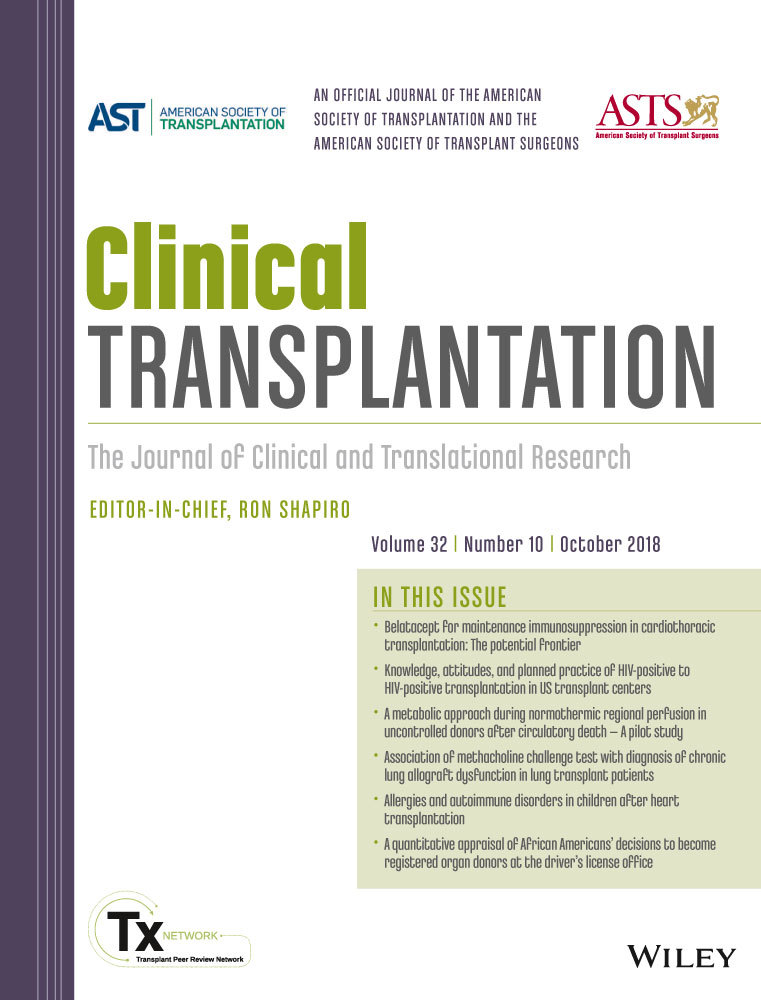Transplantation experience as a predictor for quality of life during the first 6 months after lung transplantation
Abstract
Objective
Quality of life (QoL) is a crucial goal of post-transplant care. This study investigated predictors of QoL within the first 6 months after transplantation.
Methods
Forty patients were assessed 2 weeks (T1), 3 months (T2), and 6 months post-transplant (T3). In the quantitative part, the EuroQol questionnaire (EQ-5D) and visualization methods (Prism) were applied. In the qualitative part, interviews were analyzed. Regression analyses were used to investigate the impact of the pictorial ratings at T1 on QoL at T2 and T3. The pictorial variables were related to the interviews for an in-depth analysis.
Results
There was an increase in QoL between T1 and T2 that remained stable from T2 to T3. Smaller distances in the variable Prism_Lung (acceptance of the lung) and larger distances in the variable Prism_Transplantation (distance to the transplantation experience) were related to the increase in QoL between T1 and T2 and to an higher QoL at T2. High-QoL patients were able to create an equilibrium of defense and acceptance.
Conclusion
Psychological processes early after transplant are of significance for the development of QoL within the 6 months following the surgery. These insights demonstrate that a mixed methodological approach provides a helpful understanding of post-transplant processing.
CONFLICT OF INTEREST
None.




